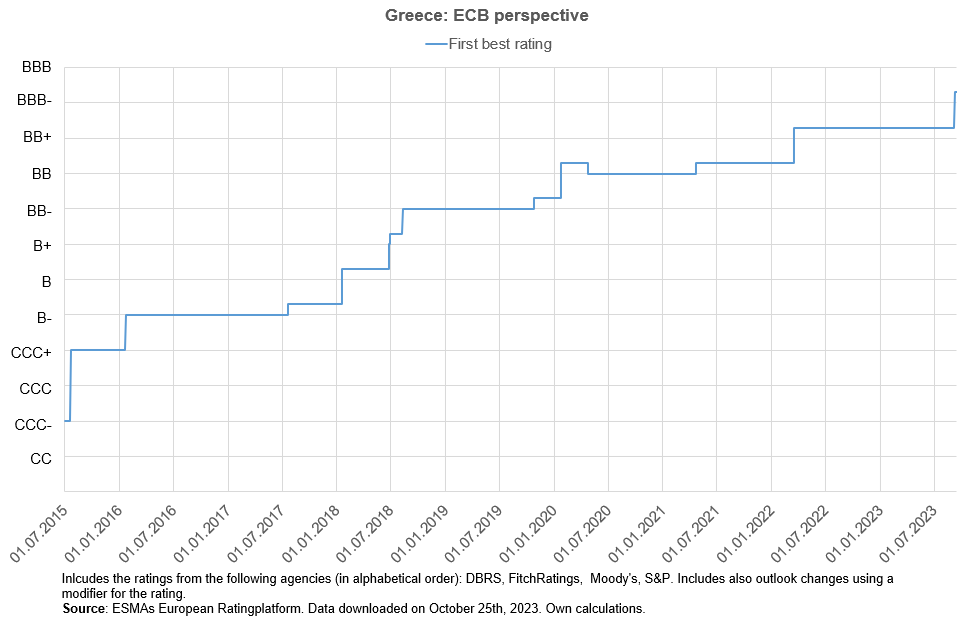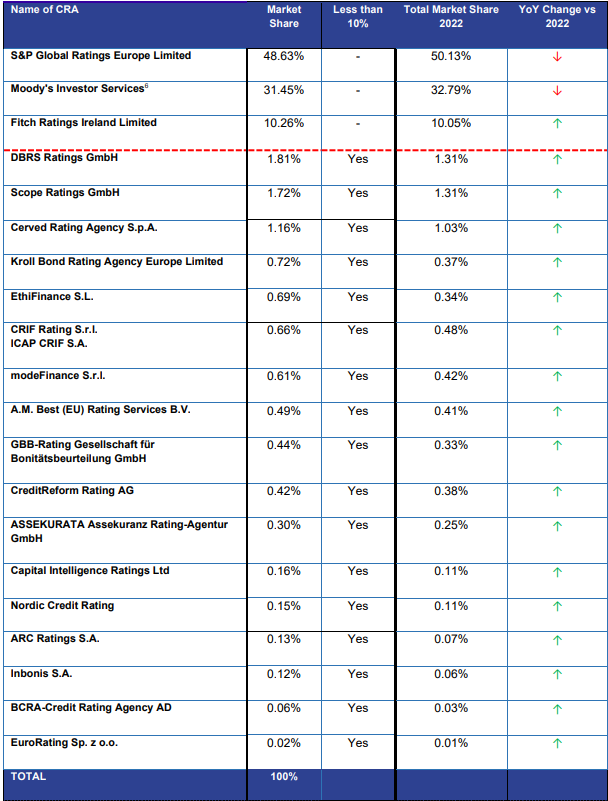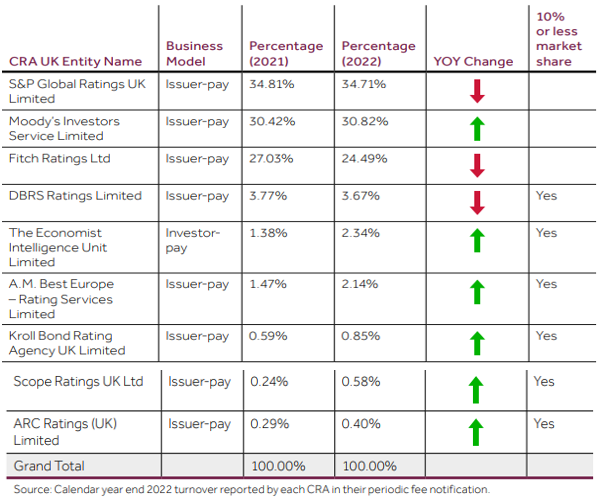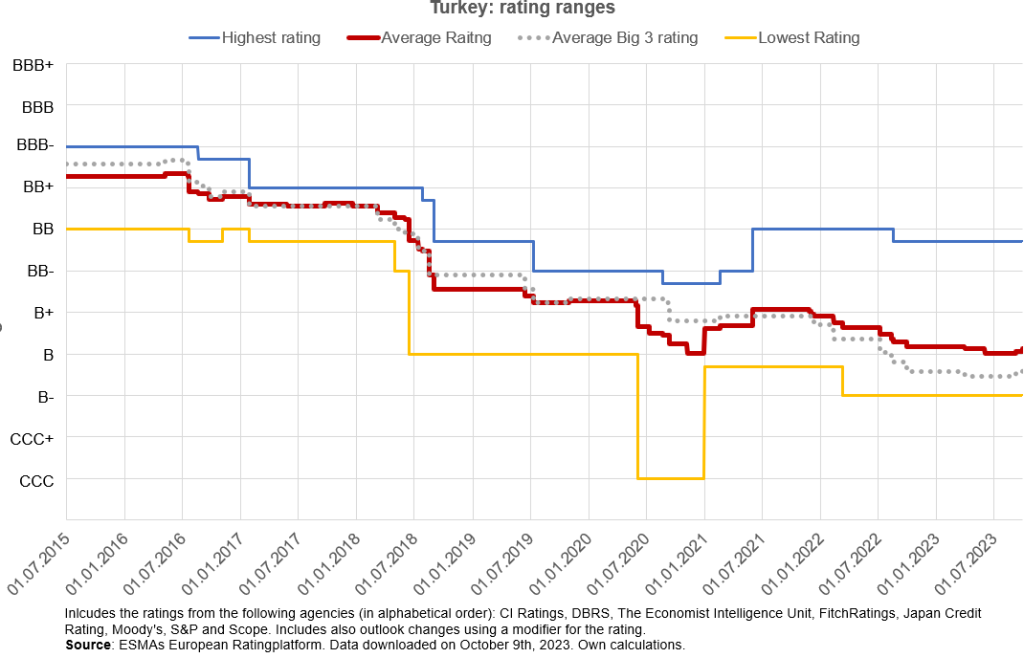In parallel to our research piece on Turkey’s sovereign rating, we are also having a look onto Greece as a neighboring country.
Data used
Our analysis is based on the rating information available on ESMAs European Ratingplatform (“ERP”). Credit rating agencies registered or certified with ESMA need to report their rating actions on a daily basis to ESMA so that these can be made available to the public in accordance with the CRA Regulation as amended in 2013.
Rating activity data at ERP are available from July 2015 onwards. According to ERP, the following 7 agencies rate (or rated) Turkey (in alphabetical order): Creditreform Rating, DBRS, The Economist Intelligence Unit, FitchRatings, Moody’s, S&P and Scope. We downloaded the data from ERP on October 25th, 2023.
Rating evolution
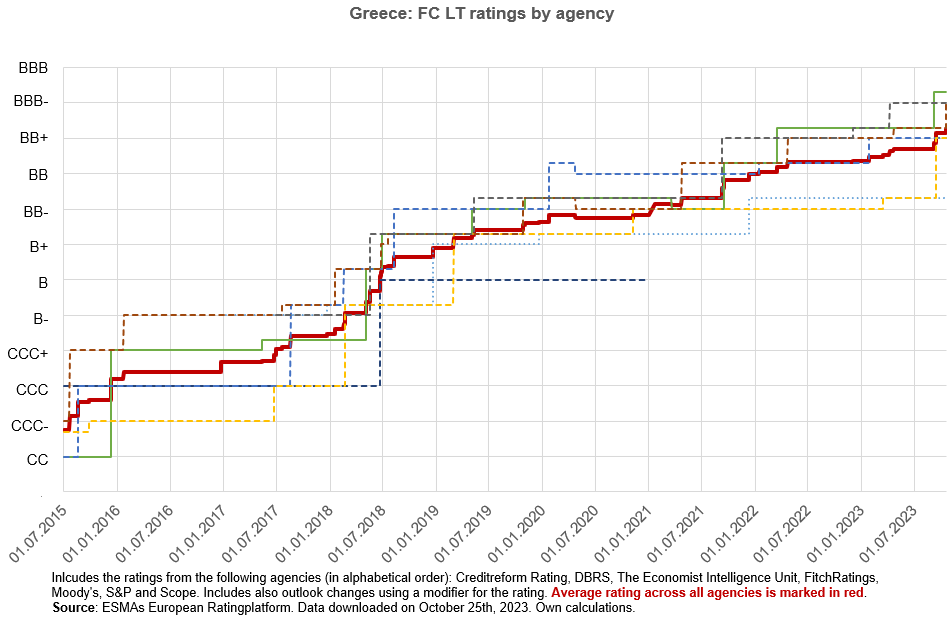
The graph above outlines how the long-term foreign currency ratings on Greece evolved from July 2015 onwards. The graph includes a modifier to cover for the outlook. Given proprietary rights of the rating data, we are not disclosing the names of the individual agencies.
As can be seen from the graph, Greece’s sovereign rating improved over the whole period, agencies currently rating Greece between BB- and BBB-.
Rating ranges
The graph below summarizes the ratings of the 7 agencies:

Next to the highest and lowest rating across all agencies, the graph displays the average rating by the 7 agencies as well as the average rating by the Big 3 agencies (S&P, Moodys and Fitch).
ECAI Credit Quality Steps analysis
The graph below outlines the evolution of Greece’s credit ratings based on the ECAI credit quality steps applicable to banks in Europe which uses 6 steps. The credit ratings from the individual agencies was converted to these 6 ECAI steps using the mapping provided by the European Supervisory Authorities.
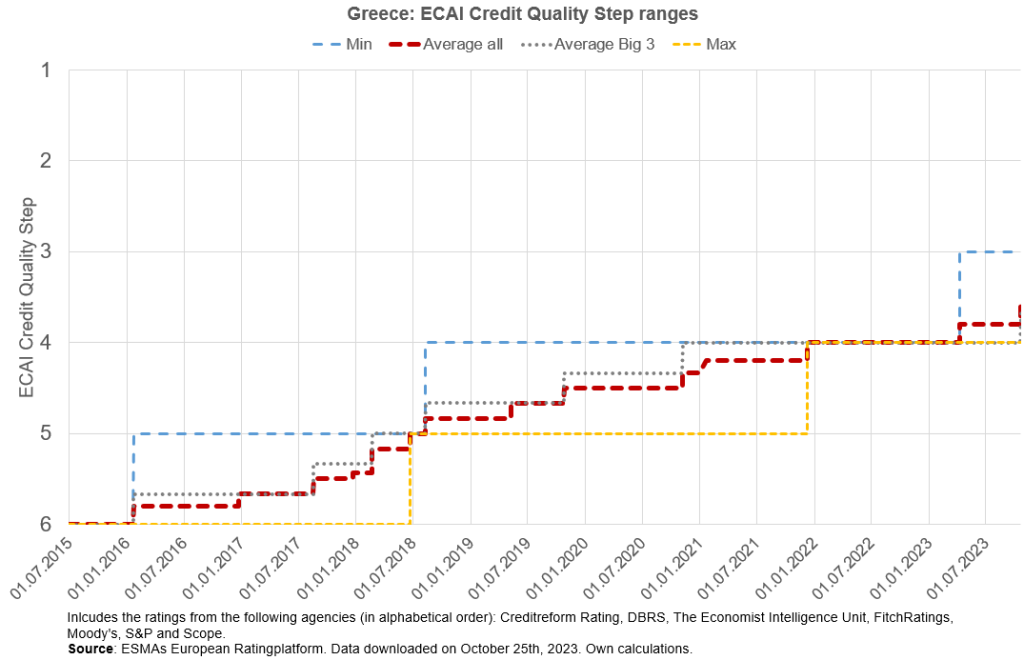
Given that the ECAI credit quality steps are less granular than the rating scales used by the rating agencies, fewer movements of the average quality appear. From July 2018, the average ECAI rating across all sources moved from 6 (the lowest credit quality step – corresponding to ratings below B-) to 5 indicating all agencies rated Greece in the B region. By January 2022, the average ECAI rating reached step 4 (corresponding to BB). By April 2023, one agency assign the first investment-grade ratings which was followed by two other agencies.
OECD Country Risk Classification
The OECD Country Risk Classification can be used in the European Union as an alternative approach to Credit Rating Agencies in order to derive risk weights in accordance with Article 137 of the Capital Requirements Regulation.
The OECD Country Risk Classification started in 1999 and covers nearly all countries in the world. The OECD uses a ranking system from 1 (highest credit quality) to 7 (lowest credit quality) and does not use outlooks. The OECD experts meet 3 times a year and review the ratings based on geographical groups on a yearly basis or when a rating action is required.
While within the OECD Country Risk Classification all High Income OECD Countries and all High Income Euro zone Countries were classified 0 (meaning that no minimum export insurance premium would apply) until end 2012, since January 2013 all these countries are no longer reviewed or classified within the OECD framework.
Risk weight approach
Article 114 (2) of the Capital Requirements Regulation foresees the following risk weights for exposures to Sovereigns outside of the European Union:

The following graph would theoretically result for Greece:
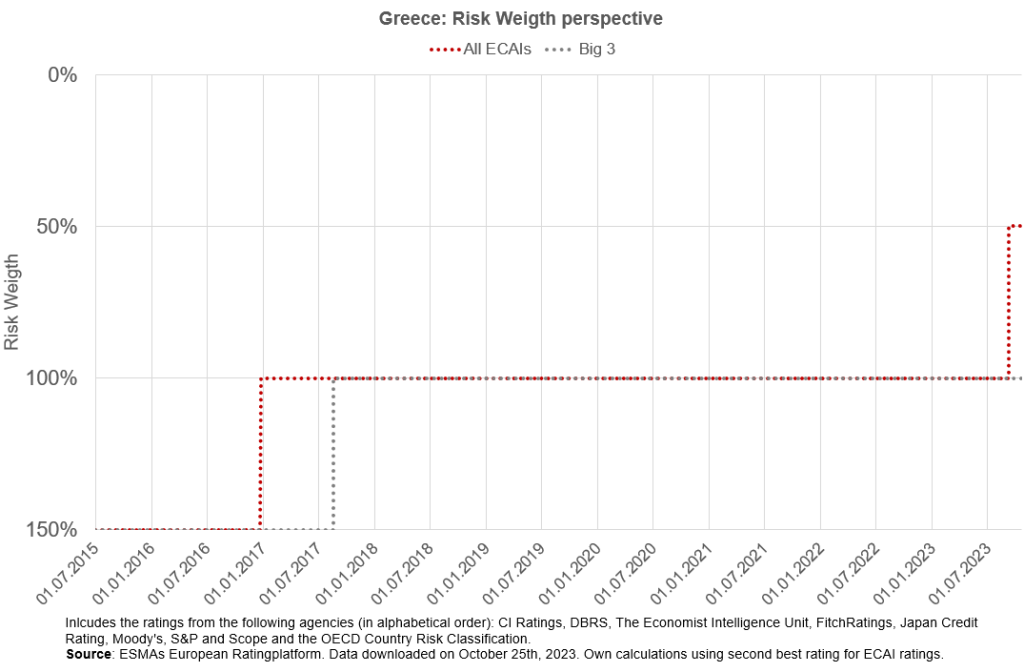
When using all ECAIs to derive the risk weight instead of focusing on the 3 dominant agencies, capital requirements relating to Greece would have dropped earlier.
But, according to Article 114 (4), “Exposures to Member States’ central governments, and central banks denominated and funded in the domestic currency of that central government and central bank shall be assigned a risk weight of 0 %”.
ECB Eligibility
Within the European Central Banks European Credit Assessment Framework (ECAF), the ECB accepts the following 4 agencies as an ECAI source: DBRS, Fitch, Moody’s and S&P. The ECB defines eligibility criteria for collateral operations and asset purchase programmes (APP and PEPP) using amongst other a minimum first best rating of BBB-.
The graph below illustrates that Greece had become eligible under the general guidelines already in September 2023:
